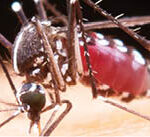COVID-19 pandemic is one of those moments in history when suddenly an unknown disease began somewhere and rapidly spread across the world — killing people while humanity still struggles to make sense of it.
In the early 1940’s, French philosopher, Albert Camus started work on one of his famous works “The Plague” – a novel that was published in 1947. Oran, a town in Algeria was on lockdown after the outbreak of a deadly disease. It all began with dead rats; at homes and offices and then on the streets. People were falling ill and dying. There was quarantine. More people died, many people were separated from loved ones. Some people recovered, some did not. As Steve Coll noted in an article in the New Yorker; “Camus was less interested in the evolving science of epidemic response than in our capacity as individuals to face the truth, endure, and contribute to success under extreme conditions.”
- How police ‘extort’ victims before tracking kidnappers, thieves
- Anambra gov’ship: PDP rejects storage of electoral materials in Imo
Last year, at the peak of the COVID-19 pandemic, Camus’ novel came back to life, becoming a top seller 70 years after publication. The reason why the novel became relevant again is because of the fact that many of the ways people of Oran responded to the outbreak of a deadly disease resembles the way our world of today was responding to an epidemic that many say has changed the world.
One of the lessons of the pandemic is that, when faced with a sudden outbreak of a deadly disease, human beings naturally, first, resort to denial. Politicians in some parts of the world went berserk denying the reality of the pandemic, resorting to shifting blames and in most cases failing to take responsibility. Some politicians made attempts to politicise what is purely a scientific challenge. Their failure to do what needs to be done put lives at risk and created panic.
At the onset of the pandemic, many conspiracy theories were making rounds. Manipulated videos and false claims misled millions of people into believing that the pandemic was a plot by some powerful forces to depopulate ‘Africa’ and create a monopoly of vaccines that will make the rich richer. Some religious clerics misguidedly delved into what is purely a medical challenge and misled people with ignorance and fear. In a viral video, a cleric claimed that the pandemic was aimed at preventing Muslims from performing Hajj. Another notorious evangelist made harmful claims that the outbreak of the pandemic was ‘planned.’ One politician circulated videos in which he made infantile claims that COVID-19 is caused by 5G mobile networks — even though the audience of the politician is living in a location without the 5G network and many people have died as a result of the virus.
The world heaved a sigh of relief when vaccines were discovered. But even the vaccines were the subject of even more dangerous conspiracy theories. Some of the theories are so ridiculous to the extent that they are unworthy of mention. Scientists, political leaders, medical experts have been explaining and showing examples that the vaccines are safe and good but the conspiracy theories are refusing to go away. The trick is always to use fear of the unknown to convince the gullible about unfounded and baseless claims. Despite this, millions have taken the vaccine and are encouraging others to do so.
Another lesson of the pandemic is the stark reality it shows about inequality. It shows that “The world is what it is..” It shows that nations must take their destiny into their own hands, as the cliché goes. Waiting for aid is just like waiting for “Godot.” The western world has more vaccine doses than it needs. In fact, millions of vaccines are at the risk of going to waste while poor nations are still struggling to secure the vaccines. This has created what the former British Prime Minister, Gordon Brown described as further dividing the world into “Vaccine haves and have nots.”
India is a popular destination for medical tourism, especially for people from countries with poor healthcare systems. But during the second wave of the pandemic in July, the world was shocked by how oxygen shortage turned India into a giant scene of a chaotic medical emergency. Many died in the most shocking manner — on pavements of hospitals and on rickety tricycles — as their families stayed hopeless on long oxygen queues. What happened in India shows that in healthcare, plans must involve making provision for everything. While making beds ready for the infected, many Indian states did not make adequate plans for oxygen. Kerala – a state that made sufficient and all-encompassing plans for supply of oxygen had surplus.
Investment in healthcare is the most important protection any country can have. The pandemic clearly shows this. Neglecting the health sector is reckless and a threat to everything.
In these days of social media and misinformation putting out information saves lives. Any vacuum can give an advantage to purveyors of conspiracy theories and misinformation. Above all, misinformation relating to healthcare is far more deadly.
The COVID-19 pandemic is still around. But it is already a lesson on how human beings respond to a crisis, as critical as a deadly disease.
By Isa Sanusi who can be reached through sanusii@gmail.com

 Join Daily Trust WhatsApp Community For Quick Access To News and Happenings Around You.
Join Daily Trust WhatsApp Community For Quick Access To News and Happenings Around You.

